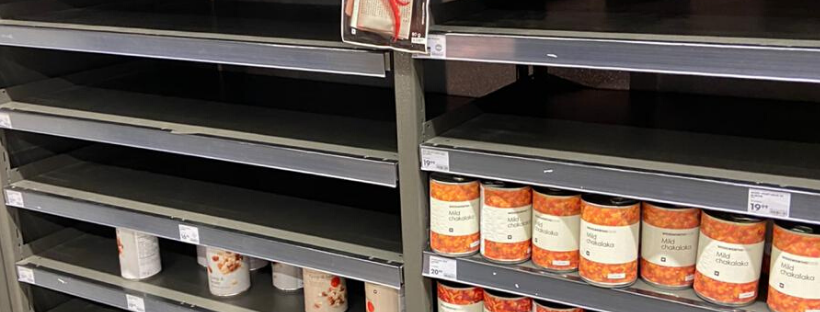Responses designed and updated now must include sustainable long-term solutions to problems that existed before Covid-19, including issues of GBV, refugee and asylum seeker rights, education and poverty, writes Mienke Steytler
This Human Rights Day was like no other.
The world is in the midst of a pandemic, President Ramaphosa last Sunday declared a State of National Disaster, we are socially isolated from one another, and fear and panic is everywhere.
It’s a challenging time but this doesn’t mean that solidarity and kindness can’t flourish, or that human rights should fall by the wayside.
On the contrary, this emergency should be a call to action for each and every one of us to stand with humanity and united in the fight for human rights.
A crisis like this highlights the inequalities that already exist in South Africa, thrusting access to sanitation, water, healthcare, safe public transport, quality education and service delivery into the spotlight .
This isn’t a time to dim the light on other issues facing our country, though.
What has become of our gender-based violence (GBV) reduction efforts?
How are asylum seekers, refugees and migrants accessing treatment for Covid-19?
Where are the homeless going for safety?
What about the safety of children?
And the climate crisis is still a reality despite the unfolding events.
Like Covid-19, the climate crisis is likely to be the most devastating for the poor, the marginalised and the vulnerable.
A pandemic cannot and should not stop action on human rights
If Covid-19 has done one thing other than cause panic buying of loo roll, it has shown the importance of uniting in our fight for human rights and the ongoing struggle for equality, dignity, freedom and climate justice.
We can all wash our hands, not touch our faces, be socially distant, use sanitiser or wear a mask (if we’re lucky to find one), but, what if there is no water to wash your hands?
What if you are forced to isolate with the person you fear most?
What if you are a health worker with no access to the equipment you need?
The government and other actors involved must ensure that all responses to the outbreak are in compliance with international human rights law and standards, and that the specific human rights risks associated with any particular response are addressed and mitigated.
So, in designing responses to Covid-19 and planning for the future, the government must be conscious of the particular impact of the virus on vulnerable and marginalised groups and ensure that their needs and experiences are fully accounted for in plans and strategies.
For example, many people living in poverty, and those who don’t have access to sufficient, safe and reliable water, may face additional barriers in being able to suitably protect themselves against the virus.
How does one fight a virus where hand-washing is key, but there is no water?
With World Water Day on Sunday (so close on the heels of Human Rights Day, it’s like Covid-19 checked a calendar before striking), Amnesty International South Africa welcomes the promises government has made in light of Covid-19 and we call on them to take further action in order to ensure the right to sufficient, safe and reliable water for all people in South Africa.
The government must be transparent with communication and information regarding where water is being delivered and how much is provided each time.
It must also be accountable to the commitments made in light of Covid-19, including water tank deliveries, and to international and national obligations by providing daily updates on the progress of these commitments.
What happens post-Covid-19?
Responses designed and updated now must include sustainable long-term solutions to problems that existed before Covid-19, including issues of GBV, refugee and asylum seeker rights, education and poverty.
We can all take action and tell the government what sort of South Africa we want to see post-pandemic.
Let us remember those who sacrificed for our freedoms, stand with humanity and take action.
We can get through this together without leaving anyone behind.
You can read Amnesty International’s preliminary observations on responses to Covid-19 and states’ human rights obligations here.
Use this time to learn about human rights!
Check out the Amnesty Academy, we have a course on Covid-19 and human rights too.
Follow Amnesty International South Africa on Twitter, Facebook and Instagram.
– Mienke Steytler, Media Officer, Amnesty International South Africa
Originally published on News24


